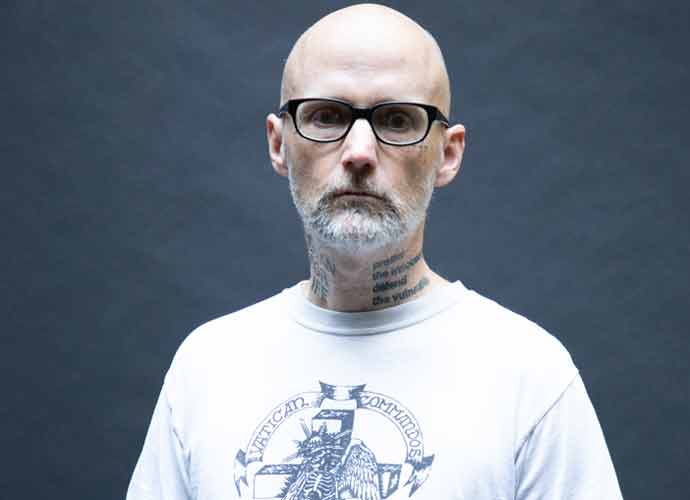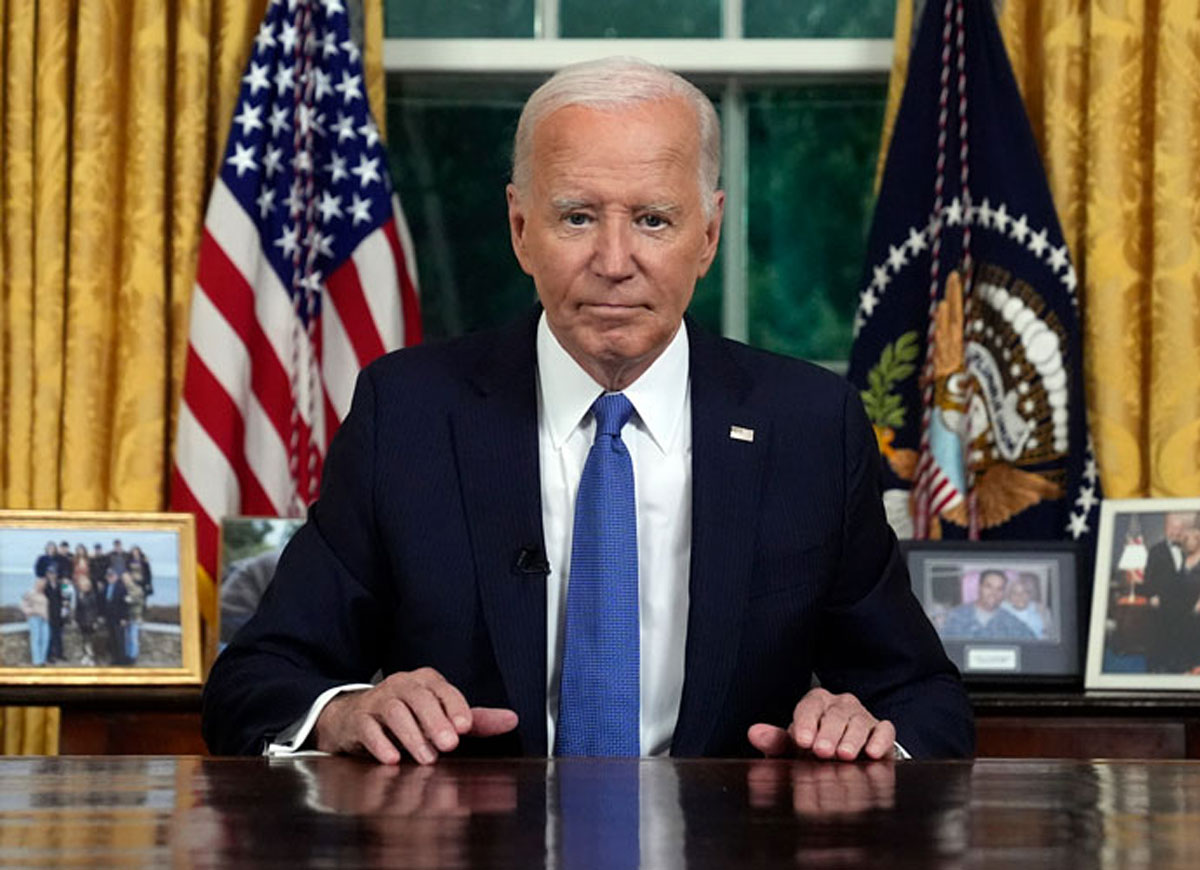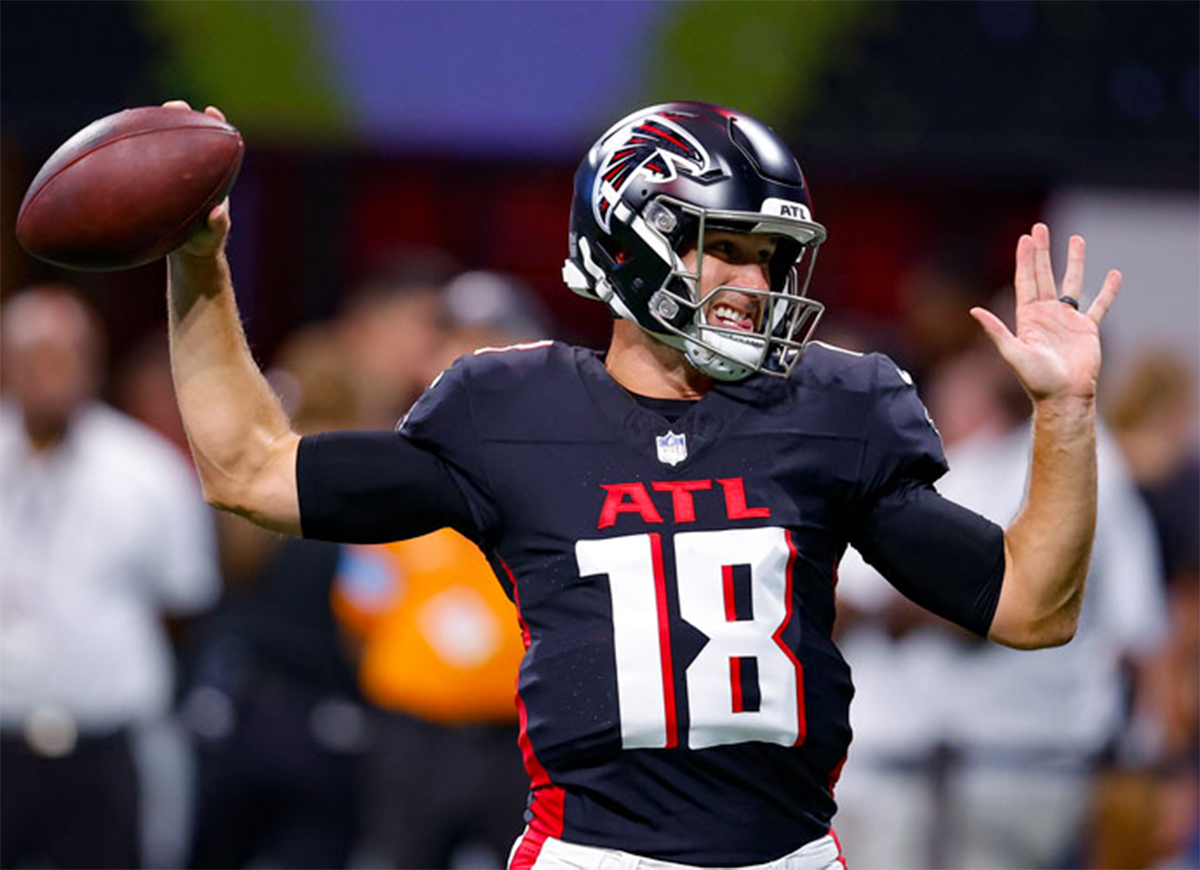Moby Biography: Exclusive Video, News & Photos, Age
Richard Melville Hall, known professionally as Moby, is an American musician, singer/songwriter, author, producer and animal rights activist. He is best known for his contributions to dance music and vocal support of veganism and animal rights. In this biography, Moby reveals exclusively to uInterview the key moments of his career and his life.
MOBY BIOGRAPHY: NAME ORIGIN, EARLY LIFE, FAMILY, EDUCATION
Moby was born on September 11, 1965 (Moby: age 55) in Harlem. His mother, Elizabeth McBride, was a secretary, and his father, James Frederick Hall, was a chemistry professor. His parents gave him the nickname Moby at a young age, as they considered the name Richard too big for a newborn baby. Moby’s middle name, Melville, comes from his familial connection to the famed 19th-century novelist Herman Melville. When he was just two years old, Moby’s father died in a car accident while drunk driving after he learned that his wife was leaving him. After his death, Moby and his mother moved to San Francisco for a short period of time. While living there, Moby was sexually abused by a staff member at his daycare. Moby’s mother then moved the family to Darien, Connecticut, where they lived in poor conditions with several other tenants. The pair relocated to Stratford, Connecticut, where his mother continued struggling to support the family, often relying on food stamps and government welfare. From time to time, they stayed with Moby’s grandparents in Darien, where Moby ended up attending Darien High School.
Moby first began playing music at the age of nine. He received piano lessons from his mother and also began learning classical guitar. Moby graduated from Darien High School in 1983. After his high school graduation, Moby pursued a philosophy degree at the University of Connecticut. While at the university, he worked as a DJ at the college radio station WHUS. From there, he took on more work as a DJ in local clubs and bars. Also around this time, Moby became less and less interested in traditional instruments and more interested in electronic music. Halfway through his first year, Moby transferred to the State University of New York at Purchase, where he studied philosophy and photography. Ultimately, however, a university education was not for him, and he dropped out in April 1984 to pursue DJing and music full-time.
MOBY BIOGRAPHY: INTERVIEW ON HIS FATHER’S DEATH, FINDING MUSIC
In May of 2021, Moby spoke with uInterview exclusively about his childhood and why he first got into music.
While Moby considered the tragic loss of his father at a young age as “a defining part of my life, and of my childhood,” he revealed that growing up, his father’s death was rarely discussed.
“The truth is … and this might sound odd, I’ve never really thought about it that much, and the reason being is it happened when I was between the age of two and three years old and I don’t remember it, and for some reason, my mother and I never talked about it,” Moby explained. “And I just thought that was normal.” While Moby, later on, realized the strangeness of not discussing his father, he acknowledged that “one thing I will say I’m in a way oddly grateful for – it’s hard to miss something you never knew.”
Moby explained the impact of this loss further, saying, “In my case, I don’t have memories of having a father, so I just always sort of self-identified, understandably, empirically, as someone who doesn’t have a father. What I will say is it was one of the many facets of my identity that made me feel separate from the world around me.”
Music turned out to be a stabilizing presence in Moby’s life, alongside his other passions. “At a very early age… my brain started assessing things in the world on the criteria of ‘do they feel safe,’ and at an early age, I sort-of almost compartmentalized and said okay, music makes me feel safe, animals make me feel safe, books, nature, these things make me feel safe,” said Moby. “On the other side,” he explained, “was humans, because humans simply did not make me feel safe. I felt very little comfort in the world of humans.” Moby noted wryly, “Not surprisingly, I’m currently 55 years old and live alone and I largely work alone and I spend my time with music, animals, books, and going outside. So… really in some ways I could say, even though I’m old, I haven’t really in my basic orientation towards things changed that much.”
Catch the full interview at the top of the page.
MOBY BIOGRAPHY: CAREER IN MUSIC
In 1983, Moby became the guitarist in the hardcore punk band the Vatican Commandos. Moby is credited on their 1983 debut album, Hit Squad for God. After leaving Vatican Commandos shortly after, Moby started his own group with some friends, called AWOL. The new band had a more post-punk, New Wave sound. The band’s only release, a self-titled EP, was released in 1984. After dropping out of college in 1984, Moby relocated to Greenwich, Connecticut, where he DJed for two years at the under-21 club The Cafe. In 1988, Moby moved into a semi-abandoned factory in Stamford, Connecticut. While the factory had no bathroom or running water, the unlimited electricity allowed him the freedom to work on his music. After trying and failing for a couple of years to get an offer from record companies for his demos, Moby moved to New York City with his close friend and artist Damian Loeb. In New York, Moby DJed at local clubs and venues while also playing guitar for the alternative rock group Ultra Vivid Scene. In 1990, Moby joined the band Shopwell and was featured on their album Peanuts under the name Jim Biscuit. Later in 1990, Moby signed his first record deal with the newly formed independent dance label Instinct Records. Moby’s debut single “Mobility” was released in November 1990. While the single had a moderate amount of success, Moby’s real breakthrough occurred in 1991 with the remix of his song “Go,” originally from the B-side of “Mobility.” The single peaked at No. 10 in the UK. Its success lead Instinct Records to produce a compilation album of Moby’s various singles called Instinct Dance.
Moby’s debut album, titled Moby, was released in July 1992 by Instinct Records. At that time, Moby had been trying unsuccessfully to be released from his contract, and the album had been produced largely without his consent. In 1992, Moby went on tour with the Scottish electronic dance music band The Shamen as the opening act. His second nationwide tour was with The Prodigy, also an electronic dance music band, and Richie Hawtin, an electronic musician and DJ in 1993. Also that year, Instinct Records released a second compilation of Moby’s work entitled Early Underground. His second and final album at Instinct Records, Ambient, was released in August 1993. After a series of legal entanglements, Moby was released from his contract with Instinct Records and signed with Elektra Records, with whom he stayed for five years. Mute Records, a British label, handled his European distribution.
Moby immediately got to work, releasing the four-track EP Move in August 1993. The EP includes, for the first time, Moby’s own vocals. The single “Move (You Make Me Feel So Good)” reached No. 1 on the US Billboard Hot Dance Music/Club Play. That year, Moby toured for the first time as the headlining act alongside Orbital and Aphex Twin.
In 1994, Moby released the album Demons/Horses under the name Voodoo Child. His third full-length album, Everything Is Wrong, was released in 1995 with a lukewarm public reception but high critical praise. After touring with the album, he released the double remix album Everything is Wrong – Mixed and Remixed. The critical acclaim received by the album boosted Moby from the underground into the mainstream.
Between 1995 and 1996, Moby released a number of singles under the pseudonyms Lopez and DJ Cake in order to free himself creatively from commercial pressures. In 1966, Moby released his second Voodoo Child album, The End of Everything.
By 1966, Moby became somewhat disillusioned with the electronic music scene and decided to take his next album, Animal Rights, in a different way stylistically. The album was not well-received by Moby’s fanbase, and he struggled in the period after to return to his former popularity and success. Moby promoted the album on a European tour with the Red Hot Chili Peppers and Soundgarden.
In October of 1997, Moby released I Like To Score, a compilation of his film soundtrack works. Later that year Moby toured the U.S. for the first time in two years. In 1998, Moby paid Elektra Records to be released from his deal, believing that the company did little to promote and capitalize on his music.
In 1999, Moby’s fifth album Play was released internationally by Mute Records and in the United States by V2 Records (founded by Richard Branson). The album is formed around tracks from Alan Lomax‘s compilation album Sounds of the South: A Musical Journey From the Georgia Sea Islands to the Mississippi Delta. The album achieved unexpected commercial and critical success, but Moby received a lot of attention and criticism for his decision to license out each song to various films, advertisements, TV shows, and non-profits, with many labeling him a sell-out. The Washington Post even published an article describing “the Moby quotient,” which determines to what extent an artist has sold out. The album was nominated at the Grammy Awards for Best Alternative Music Performance, and the track “Bedrock” was nominated for Best Rock Instrumental Performance. The track “Natural Blues” was nominated for Best Dance Recording. The music video for the album was nominated for Best Music Video, Long Form.
In 2001, Moby released Moby: Play – The DVD, which contains music videos for the album as well as live performances. It was nominated for the Grammy Award for Best Long Form Music Video. Also that year, Moby founded and headlined the Area:One music festival, which toured across the US and Canada and featured artists such as Nelly Furtado and Outkast. The tour continued in 2002 under the name Area2 Festival and featured Moby, David Bowie, The Blue Man Group and Busta Rhymes.
Moby’s sixth studio album, 18, was released on May 13, 2002. The album was again released jointly by Mute Records and V2 records. The album was met with positive commercial and critical reception, reaching No. 1 on the U.K. charts and No. 4 in the U.S. The track “Extreme Ways” was used in all five of the Bourne films. The track “18” was nominated at the Grammys for Best Pop Instrumental Performance.
In 2003, Moby headlined the Glastonbury festival for a single day. Also that year, he co-wrote and produced “Early Mornin'” for Britney Spears‘ album In the Zone.
Moby added on to his already prolific repertoire with the release of Baby Monkey in 2004. Baby Monkey was the third studio album produced under his moniker, Voodoo Child. The album received mixed critical reviews and moderate commercial success.
Moby’s seventh album, Hotel, was released in March 2005. Several tracks did well, becoming top-ten hits across the U.K. From 2005 to 2008, Moby scored a film soundtrack (Richard Kelly‘s 2007 Southland Tales), made remakes, and arranged club events. He also started a rock band in 2007 called The Little Death with his friends Laura Dawn, Daron Murphy and Aaron A. Brooks.
Moby returned to electronic dance music with his 2008 album Last Night. The album was nominated in the 2009 Grammys for the best Electronic/Dance Album. Last Night was quickly followed by Moby’s ninth studio album, Wait for Me. Moby found the inspiration for Wait for Me in David Lynch‘s BAFTA Award ceremony speech. Lynch, a famous filmmaker, ended up directing the music video for “Shot in the Back of the Head.”
In 2010, Moby started yet another band, this time a heavy metal one, called Diamondsnake. He enlisted vocalist/songwriter Phil Costello, guitarist David Hill and a drummer named Tomato. Their self-titled debut album was recorded in one day and released to the public for free on their website. Four of the songs were featured on the soundtrack of the 2010 thriller film The Next Three Days.
2010 was a busy year for Moby: he released yet another album, titled Destroyed, in May. Around the same time, Moby released a book of photography of the same name. In 2012 a remixed version of Destroyed was released, called Destroyed Remixed. Moby promoted the album with a tour of only three shows, explaining that he preferred staying home to write music to tour around.
In October 2013, Moby released Innocents – his 11th studio album. After a hiatus of a few years, Moby returned with his 13th studio album, These Systems Are Failing. The album features vocals from himself and seven guest vocalists, a group he named the Void Pacific Choir. His sole performance of 2016 was at Circle V, the vegan food and music festival that he founded. His 12th studio album, Long Ambients 1: Calm. Sleep (2016) explored ambient music.
In June 2017, Moby released another album featuring the Void Pacific Choir, called More Fast Songs About the Apocalypse. The album was a satirical reaction to the results of the 2016 United States presidential election.
Everything Was Beautiful, and Nothing Hurt, Moby’s 15th studio album, was released on March 2, 2018. 2018 also marked Moby’s second-ever appearance in the U.S. Billboard Hot 100 singles chart with his guest appearance on A$AP Rocky‘s song “A$AP Forever,” which samples his song “Porcelain.” 2018 was a big year for Moby, with his contribution of several songs to Heather Graham’s American comedy film Half Magic. In March 2019, Moby released a follow-up to his 2016 ambient album, this one titled Long Ambients 2.
In May 2020, Moby released his 17th studio album All Visible Objects. Also in 2020, Moby released his third ambient album Live Ambients – Improvised Recordings Vol. 1.
May 28, 2021 was a big day in Moby’s career. He released his 19th and latest album Reprise, which features orchestral and acoustic arrangements of his greatest hits, and Moby Doc, a documentary about his life, was released digitally and to domestic theaters.
MOBY BIOGRAPHY: ‘GO’ LAURA PALMER REMIX ORGINS
Moby’s breakthrough single “Go” was released in 1991. “Go” was a remix of an original track on the B-side of Moby’s debut single “Mobility” and a sample from “Laura Palmer’s Theme” from the show Twin Peaks. In an exclusive conversation with uInterview, Moby explained the experience of his first popular song and creating the remix in the first place.
“I had never expected to have a career as a musician. I never even expected to make music that people would listen to,” he recalled. “When I was in high school I played in a punk rock band and we played to five people a night. When I started DJing I was sometimes playing to three people a night. My expectations were very small.” Moby described feeling “amazed” when the original track sold just a thousand copies.
A British label told Moby they wanted to release “Go,” but could only release a remixed version of it. Moby explained that he was working on the remix “right when Twin Peaks started, and I love David Lynch, so I think it might even have been as literal as work on a remix, watch Twin Peaks, go back to working on the remix, trying to work Laura Palmer’s Theme into the remix.”
The remix ended up peaking in the top charts of the Netherlands and the U.K., jumpstarting Moby’s career and launching him into fame. Moby recalled that, despite this success, he was still “living in this abandoned factory…still only making $3,000 a year.”
Check out the full interview below.
MOBY BIOGRAPHY: BOOKS AND PHOTOGRAPHY
In 2010, Moby and animal activist Miyun Park released the essay collection Gristle: From Factory Farms to Food Safety (Thinking Twice About the Meat We Eat). The book contains accounts from various food industry insiders describing the realities of animal and factory farming.
The next year, Moby released a photography book entitled Destroyed, released in conjunction with the album of the same name.
In 2014, Moby began to write an autobiography detailing his life and career from the late 1980s to the release of “Play” in 1999. The final version was published by Penguin Press on May 17, 2016 with the name Porcelain: A Memoir. Moby’s second memoir Then It Fell Apart, which covers his life and career from 1999 to 2009, was released on May 2, 2019.
MOBY BIOGRAPHY: PERSONAL LIFE
Moby lived in New York City until 2010 when he moved to Los Angeles. He currently lives in the Los Feliz neighborhood of L.A.
Moby has come into conflict with several other celebrities throughout his career. In 2002, Eminem mocked Moby in his song “Without Me” and its music video, even depicting himself shooting Moby. Moby laughed off the attack, chalking it up to Eminem having an unrequited crush on him. Moby has previously dated Kelly Tisdale and Lana Del Ray. His current relationship status is unknown, and he has no children. He has stated that he feels more comfortable being alone than in a relationship.
In December 2002, Moby was attacked during a tour stop in Boston by several assailants who punched him in the face and sprayed him with mace.
Moby has described himself as a “Taoist-Christian-agnostic quantum mechanic.” While he doesn’t believe in the institution of the Christian church, he is a firm believer in Jesus Christ and God.
Shortly after his mother’s death in 1997, Moby began experimenting with drugs, alcohol, and sex. For several years he was an alcoholic and would even ask fans at his concerts for drugs. His suicide attempt at age 43 was the turning point, and in 2008 he stopped drinking and began attending Alcoholics Anonymous meetings.
MOBY BIOGRAPHY: STRUGGLES WITH FAME, DRUGS
Moby’s first experience with hard drugs occurred when he was 19 and tried LSD. Speaking exclusively with uInterview, Moby explained that the experience triggered an already existing anxiety and impacted his mental health detrimentally for months after.
“I started experiencing anxiety and general sort of dislocated discomfort at a very early age, possibly even in the womb,” said Moby. “And it kept building and it kept building but I didn’t have the means to process it… and then when I was 19, I tried acid for the first time, and I feel like it broke the wall between me and this anxiety.”
The anxiety attack lasted “in a plateaued form for actually about six months.” Moby called that period of time “a dark night of the soul.”
Moby explained that he originally looked to fame to solve all of these pre-existing psychological issues.
“Fame, even material success, financial success, all these things, they’re fine,” he said. “The problem that I had is that I expected them to fix my psychological issues, I expected them to fix my existential issues, and clearly, that’s not what fame and success are supposed to do.”
Using figures such as Ernest Hemingway, Kurt Cobain, and Avicii as examples, Moby spoke about how successful artists often feel disappointed with their lives, and turn towards drugs and suicide.
“There’s this confusion that arises that’s really terrifying when you spend your whole life thinking that when you finally get to that place of accomplishment you’ll be happy, and then you get to that place of accomplishment and you’re not happy, in fact, you’re isolated and lonely and scared and don’t know what else to do.”
Moby explained that this often leads to drinking more and doing drugs, and in some cases “people tragically end their own lives because they don’t know how to fix their own lives.”
Watch the full interview below.
MOBY BIOGRAPHY: PHILANTHROPY
Moby has a long history of philanthropic activity. During the California leg of his 2009 Wait For Me tour, Moby donated $75,000 of the proceedings to help those affected by domestic violence after the state cut funding for the program.
Moby donated all the profits from his 2018 album Everything Was Beautiful, and Nothing Hurt to animal rights organizations. Moby continued into the animal rights world by becoming first a vegetarian and then a vegan. He claims he was inspired to do so by a cat named Tucker that he rescued from a dump in Darien as a child. In 2002, Moby launched a small raw and vegan restaurant and tea shop called TeaNY with his then-girlfriend, Tisdale. The business remained open until 2015. In 2015, Moby opened another vegan restaurant, this time in the Silver Lake neighborhood of Los Angeles. Moby donated all of the profits from Little Pine to animal welfare organizations. In 2016, Moby founded Circle V, the first-ever vegan music and food festival. The event took place at LA’s Fonda Theatre and featured artists Blaqk Audio and Cold Cave amongst others.
Moby is involved with a number of organizations, including MoveOn, The Humane Society and Farm Sanctuary, has participated in many charity benefits, and sits on the Board of Directors for the Institute for Music and Neurological Function (IMNF).
MOBY BIOGRAPHY: EXCLUSIVE INTERVIEW ON VEGANISM, ANIMAL RIGHTS
In an exclusive conversation with uInterview, Moby spoke about the major impact veganism had on his life.
Moby explained that his decision to become vegan came out of his sobriety. “Before I got sober, which was about 12 years ago, I was as scared and selfish and narcissistic as a person could be,” he said.
After becoming sober, Moby realized that “the goal of sobriety is not sobriety, it’s to live a happy, spiritual life, and I would say by definition involves being willing to be of service, being willing to put others needs ahead of your own.” That realization led him to become involved in animal rights. He describes it as “the purpose that’s so much bigger than me, that’s so much more important than my own life, the thing I’m willing to die for.”
Moby explained to uInterview the belief that motivates his animal rights advocacy and vegan lifestyle. “I have this sort of belief that humans are weirdly excluded from the natural order of things – I don’t know what you call it, divinity, grace, a state of pure being – but somehow humans are separated from that, and I don’t know what it is, but we punish those beings who exist in a state of grace – animals, nature,” he said. “And to me, there’s almost no more noble calling than protecting the innocent, and for me, that’s the trillion animals who are killed by and for humans everywhere.”
Moby went as far as to say that “working to somehow change [animal cruelty] is just so much more important than my career, than my happiness, my health, it’s even more important than my own life.”
Check out the full interview below.
Moby News
- VIDEO EXCLUSIVE: Moby Reveals How He Created His Hit ‘Go’ Laura Palmer Remix
- VIDEO EXCLSUIVE: Moby Says Becoming A Vegan Literally Saved His Life
- VIDEO EXCLUSIVE: Moby Says He Had 6-Month Anxiety Attack After Doing Acid For First Time
- Herman Melville's 'Moby-Dick' Gets Google Doodle For 151st Anniversary
- Billie Eilish & Brother Finneas Attend Fundraiser For Their Mother’s Support + Feed Organization
- Lollapalooza 2021 Lineup Released – Tickets Available Now!
- ‘The Lighthouse’ Blu-Ray Review: Robert Pattinson & Willem Defoe Shine In A Difficult, Confusing Triumph
- Did Bob Dylan Copy His Nobel Prize Lecture From SparkNotes?
- Bob Dylan Delivers Nobel Price Lecture, Just Before June 10 Cutoff Date [VIDEO]
- New ‘Sonic Forces’ & ‘Sonic Mania’ Details Divulged Through Famitsu And Nintendo Direct
- ‘Aquaman’ Movie Release Date Revealed
- Yoko Ono’s ‘Yes, I Am A Witch Too’ Album Review: A Batch Of Eccentric Remixes
- ‘Grey’: Christian Grey’s Abusive Childhood Revealed In New ‘Fifty Shades of Grey’ Book
- Robert Plant Reportedly Refused $800 Million Paycheck for Led Zeppelin Reunion
- Neil Patrick Harris To Host 2015 Oscars
- Google Doodle Celebrates Rodin's Birthday With 'The Thinker'
- PHOTO: Kristin Davis Dating Aaron Sorkin
RELATED ARTICLES
Get the most-revealing celebrity conversations with the uInterview podcast!




 by
by 



Leave a comment